Over the past 40 years, economic reforms and global trends have pushed Vietnam’s economy from one of the poorest in the world to a middle-income economy, according to the World Bank. In line with its continual and steady development, the country expects 5.5% growth in 2024, up from 5% in 2023. This expansion has put Vietnam well on its way to achieving its goal of becoming a high-income country by 2045.
WDI has managed programs in Vietnam for the last 20 years, as part of the Institute’s mission in low- and middle-income countries (LMICs). In 2004, the Institute hosted a six-week management education program for executives from Vinacomin, Vietnam’s national mining country. In 2017, MBA students from the Ross School of Business at the University of Michigan worked with Vietnam Partners LLC to develop a Center for Entrepreneurship and Innovation and a venture capital fund focused on start-ups. Another group of MBA students joined Solagron, a high-tech agricultural company that relies on solar energy to cultivate and process microalgae, in 2024 to build a market entry strategy.
“Vietnam has all the characteristics of a market perfect for WDI’s involvement,” said Amy Gillett, WDI Vice President of Education “Its economy is an innovative one. Its players want to diversify, support start-ups, and strengthen managerial skills, so it’s the ideal time for us to be there. There is massive potential.”
Over the last three years, WDI has been elevating Vietnamese business leaders’ skills through its Advanced Mini-MBA Program at the FPT School of Business & Technology (FSB). This partnership brings together educators and business leaders to expand participants’ management skills, bolster business education opportunities and encourage economic growth in the country.
“Helping countries transition from centrally planned economies to market economies is WDI to its essence,” Gillett said. “When you make that transition, you need to cultivate and rely on a new level of management skills. WDI is perfectly equipped to train business leaders in these important skills, whether it’s in Eastern Europe, Sub-Saharan Africa or Southeast Asia.”
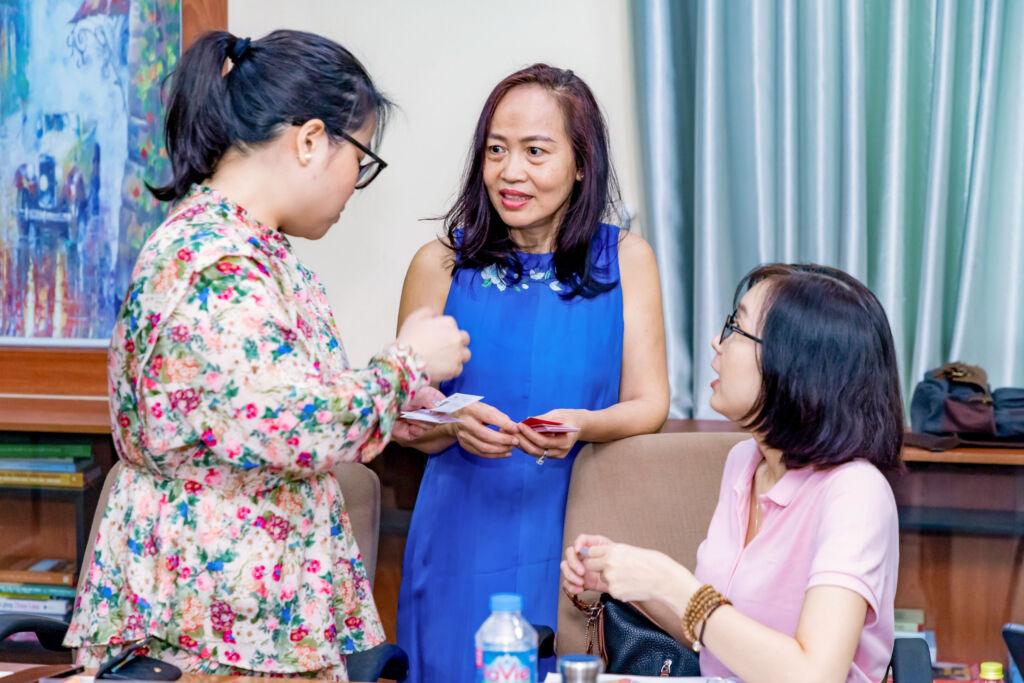
Not only has the government supported economic growth in the country through improved infrastructure and healthcare, but the nation’s businesses have pushed for inventive ways to accelerate their industries. The country is experiencing a steady increase in GDP per capita and improved infrastructure access.
“Vietnam is an interesting setting for management training because of the unique characteristics of the business environment. The high degree of government participation in the economy, for example, means that a company’s go-to-market strategy must respect this government — or, even better, leverage the government participation for competitive advantage,” said John Branch, clinical associate professor of business administration at the University of Michigan’s Ross School of Business. He teaches in the Mini MBA Program in both Vietnam and in Riga, Latvia.
The certificate program was co-developed by Gillett and David Estrada, WDI Education program administrator, specifically for the Vietnamese market. It digs into how to leverage these government relationships and requirements, and it also covers critical lessons on foundational business skills. WDI-affiliated faculty and FSB instructors teach executive students about strategy, sales management, marketing, finance, operations, entrepreneurship, leadership, negotiations, human resources and more. Through a combination of in-person and online sessions, the program pushes participants to focus on digital transformation, leadership expansion, practical decision-making and organizational-level thinking.
“The program is mutually beneficial,” said Nguyen Viet Thang, Dean of FSB. “WDI has brought us new values and perspectives, and having top WDI professors participate in teaching is a great benefit for Vietnamese students and faculty. Conversely, we hope WDI gains significant value in understanding the corporate management culture of Eastern countries in general and Southeast Asia in particular.”
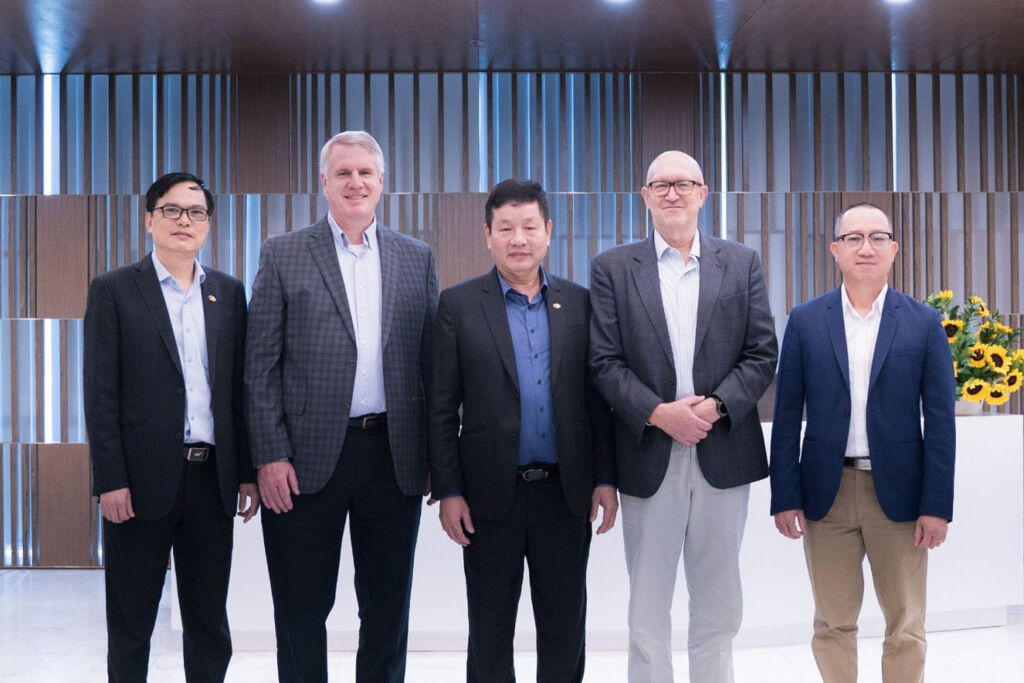
Pictured from left to right: Dr. Nguyen Viet Thang, Dean of FPT School of Business & Technology of FPT University; Paul Clyde, Former President of WDI; Dr. Truong Gia Binh, Chairman and CEO of FPT Corporation; Bradley Lalonde, Co-founder and Chairman of Vietnam Partners LLC; Ha Nguyen, Academics Head of FPT School of Business.
WDI has brought us new values and perspectives, and having top WDI professors participate in teaching is a great benefit for Vietnamese students and faculty. Conversely, we hope WDI gains significant value in understanding the corporate management culture of Eastern countries in general and Southeast Asia in particular.
– Nguyen Viet Thang, Dean of FSB
This year’s program will run from July through October 2024, and each module is deeply connected to real-world dilemmas and solutions. At the end of the program, participants complete a final group project around current management challenges they face in their own businesses. Participants are asked to consider a specific issue, analyze it, and formulate a practical solution. Groups then present their project, which includes market analysis, implementation plans and feasibility decisions, to the class. At the program’s culmination, participants receive a co-branded WDI-FSB certificate — emphasizing the deep value of these global relationships and cross-cultural educational opportunities.
“The WDI and FSB partnership is a win-win situation. It fosters knowledge exchange, expands access to valuable educational programs, and ultimately contributes to the development of a strong and globally competitive business community in Vietnam,” noted Bradley Lalonde, co-founder and chairman of Vietnam Partners LLC, in a recent business newsletter. Lalonde, a private equity and fund management expert who served as the first CEO of Citibank Vietnam, played an essential role in the development of the partnership program.
This unique FSB partnership program was created to strengthen both individual business skills and the larger economy. To achieve that goal, the curriculum is directed toward those in leadership roles – in many cases, the people driving the evolution of their industries. Participants in the program must have at least five years of management experience, and their expertise and sincerity show in their dedication to the course.
“What I admire in any learner is curiosity, and the Vietnamese learners in this program are especially curious,” Branch said. “They always ask questions. They try to dig deeper into the concept theories, and they want to see direct application to their own situations.”
For students, the program is an opportunity to learn from some of the best business faculty in the world, build a network of global business leaders and transform their own skills. For WDI, the program is a chance to bring its connections and educational prowess to a newly booming nation — an effort that aligns perfectly with its mission of unlocking the power of business to provide lasting economic and social prosperity.
“From my perspective, the partnership between WDI and FSB holds significant value for both institutions and, ultimately, for the business landscape in Vietnam,” said Lalonde.
WDI works with the Weiser Center for Europe & Eurasia (WCEE) at U-M to offer NGO Leadership workshops to non-profit leaders from across central and southeastern Europe. The workshop in Slovakia covers marketing, strategic planning, entrepreneurship, fundraising and management to help NGOs run more effectively and sustainably. In 2024, the spring NGO Leadership workshop will be held in June in partnership with Bratislava-based partner, Hekima. Twenty five participants will come from Ukraine. Supplementary online modules on topics including leadership, social media marketing, and conflict resolution will be available to participants.
WDI works with the Weiser Center for Europe & Eurasia (WCEE) at U-M to offer NGO Leadership workshops to non-profit leaders from across central and southeastern Europe. The workshops cover strategic planning, resource mobilization, resilience and digital security to help NGOs run more effectively and sustainably. The fall 2024 NGO Leadership workshop will be held in October in Warsaw.
WDI works with the Weiser Center for Europe & Eurasia (WCEE) at U-M to offer NGO Leadership workshops to non-profit leaders from across central and southeastern Europe. The workshop in Bratislava covers marketing, strategic planning, entrepreneurship, fundraising and management to help NGOs run more effectively and sustainably. In 2023, the workshop will be held in June in partnership with Bratislava-based partner, Hekima. Twenty five participants will come from Ukraine. Supplementary online modules on topics including leadership, social media marketing, and conflict resolution will be available to participants.
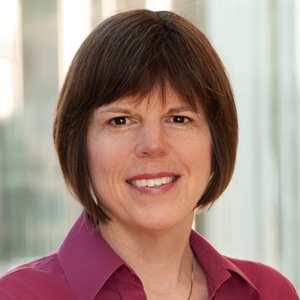
Q&A
with Amy Gillett on NGO Leadership Workshop in Lublin
Since 2015, the William Davidson Institute (WDI) and its partners have provided NGO Leadership Workshops to nonprofit leaders from across Central and Southeastern Europe. In September, the eleventh such workshop was held in Lubin, Poland. In partnership with the University of Michigan’s Weiser Center for Europe & Eurasia (WCEE) and in cooperation with Warsaw-based partner FED (Fundacja Edukacja dla Demokracji) the workshop is designed to equip NGO leaders with the skills and networks to run their organizations more effectively and sustainably.
September’s workshop was focused solely on Ukrainian organizations and attracted 24 humanitarian and nonprofit leaders.
Amy Gillett: This was our eleventh NGO Leadership Workshop and the first specifically for Ukrainian NGOs. It was also the first time we held the event in Lublin, a city in Southern Poland close to the Ukrainian border. The attendees included 23 women and one man, and all are at the front lines of providing critical services for the war effort. Participants were able to travel to Lublin by bus or train, though it was an arduous journey for many due to the heavy lines at the border crossings.
It was particularly difficult for this group of participants to leave their organizations and their families. At the beginning of the workshop, we provided an opportunity for participants to express their fears and expectations for the week. This fostered an atmosphere where participants could communicate openly and feel supported.
Another great aspect of this workshop was our diversity of trainers, bringing a variety of viewpoints and perspectives. Our trainers came from three countries: the USA, Poland and Ukraine. They represented both academics, NGO leaders and trained facilitators.
Amy Gillett: Our curriculum was geared toward addressing their most pressing needs, with training on conflict resolution, negotiations, dealing with people with PTSD, burnout prevention, and building resilience.
Among those teaching in the workshop was University of Michigan LSA professor Eric Fretz, who also served for 24 years in the U.S. Navy and was able to draw on his experiences in conflict zones including Iraq. Following the event, he posted this look back.
Every session included lots of interaction and hands-on activities – by the end of the workshop, the entire wall of the training room was covered with Post-it notes and colorful posters. And each instructor had their own approach to training, which helped keep the energy up throughout the four days.
“This workshop gave me the confidence that I am a leader, that I have the strength and ability to continue to support women. I have to take care of my team, prevent burnout and conflicts, and lead ethical policies, then the world will be a better place.”
—NGO Leadership Workshop Participant
Amy Gillett: Their NGOs focused on a range of activities, including: providing critical medical services, offering psychological assistance, defending human rights, preventing gender based violence, providing legal services, and preserving Ukrainian cultural heritage.
Among the workshop participants was noted video blogger Anna Danylchuk, who along with running an NGO focused on preserving and promoting the cultural heritage of Ukraine, releases daily video dispatches on the war in Ukraine. In fact, she continued to broadcast from our workshop, using her hotel room as her studio.
Amy Gillett: This workshop offered practical skills for improving wellbeing, building resilience, preventing burnout and increasing emotional intelligence. Many participants spoke out about how useful these areas are given the current situation. The fighting spirit of the Ukrainians is very impressive — participants always speak of “when we win the war.” The week in Lublin was a chance for participants to recharge and renew their energy for this ongoing battle. As one participant commented to me at the closing dinner, “I’m in a good place emotionally and psychologically and that means I can do more to help others.”
The workshop also enhanced the participants’ confidence as leaders. This will help them guide their organizations through these very challenging times. As one participant expressed, the workshop gave her the strength and ability to continue in her organizational mission of supporting women.
Many participants also found cooperation opportunities with each other. They are now embarking on new joint projects, combining resources and ideas to undertake high-impact work together.
Amy Gillett: Here are some notable quotes from participants:
“This workshop gave me the confidence that I am a leader, that I have the strength and ability to continue to support women. I have to take care of my team, prevent burnout and conflicts, and lead ethical policies, then the world will be a better place.”
“The workshop is really helpful and important for my personal development and beneficial to my organization. Lots of insights, practical instruments, brilliant speakers!”
“Ukrainian civil society has proven to be very brave, effective and productive. Invest in it and together we will win!”
The next workshop is planned for June 2024 in Košice, Slovakia and will again focus on Ukraine, with the NGO leaders coming from Ukraine and nearby countries. Learn more about upcoming and previous workshops here.
Photo: Participants at the NGO Leadership Workshop Warsaw during a session on Networking.
For decades, the William Davidson Institute (WDI) at the University of Michigan has held Ukraine close to its mission. When the Institute was founded more than 30 years ago, Eastern Europe was its very first geographical focus area — and for good reason. At the time, there was no guarantee that countries on the other side of the fallen Berlin Wall would embrace and deliver market-driven economies. Rather, there was concern that they would revert to government-planned economies. Those early WDI educational projects in Eastern Europe reflected the Institute’s core purpose: sharing the tools of commercial success with students, partners and other stakeholders to build both lasting economic and social prosperity.
While the conditions in Ukraine and Eastern Europe have certainly changed over the course of three decades, WDI’s commitment to the region has remained strong — even stronger after Russia invaded Ukraine nearly one year ago.
WDI’s NGO Leadership Workshops are one example of this dedication. Run in partnership with the Weiser Center for Europe and Eurasia (WCEE) at the University of Michigan, the workshops engage and guide nonprofit groups providing a variety of social services during times of struggle. The most recent workshop, which took place in October in Poland, showed just how crucial these sessions can be for participants.
With the destabilizing impact of war in the region, it is more important than ever to invest in civil society, explained Geneviève Zubrzycki, Director of the WCEE. And NGOs are key in that process.
“For NGOs working with Ukrainian refugees, there’s a level of urgency and human tragedy that we can’t ignore,” said Zubrzycki.
These biannual four-day workshops have been held in Slovakia and Poland since 2015. They bring together nonprofit leaders to network with one another, learn about topics close to their work, and connect with global experts. The sessions regularly cover planning and sustainability, NGO management, marketing strategies, advocacy and fundraising.
It’s powerful work that many of these managers would be unable to tackle on their own, but through the support of WCEE, they can come together without being saddled with the cost of tuition, room, or travel. Leaders can focus entirely on boosting their impact at home, and the coursework is built to do exactly that. “Each session raised important points that I will consider in my work with my team at our NGO,” said a Romanian participant, one of the 24 leaders who joined the workshop in Warsaw.
For NGOs working with Ukrainian refugees, there’s a level of urgency and human tragedy that we can’t ignore.
Geneviève Zubrzycki, Director of the WCEE.
For NGOs working with Ukrainian refugees, there’s a level of urgency and human tragedy that we can’t ignore.
Geneviève Zubrzycki, Director of the WCEE.
The 2022 workshop in Warsaw was scheduled prior to Russia’s full-scale invasion of Ukraine in February 2022. War had fallen on communities across the country, and Ukrainians fled the violence with whatever they could carry, clinging to family members and ditching cars when they ran out of gas. According to the UN Refugee Agency, 6.3 million people from Ukraine have been recorded crossing international borders into neighboring countries including Poland and Moldova since the invasion. The effects have sent a wave of challenges through the continent.
As WDI planned the workshop in 2022, it was impossible to ignore the growing pressure placed on regional nonprofits. WDI and WCEE worked to adapt the program to meet the realities on the ground.
“Dedicating the workshop to NGOs working with Ukrainian refugees made it possible for us to tailor sessions to their specific needs. It also created a safe space for them to discuss difficult topics,” said Zubrzycki.
WDI similarly shifted its curriculum to meet the needs of the many NGOs in the area serving Ukrainian refugees. Experts joined to share advice on maintaining digital security, planning strategically during crises, avoiding staff burnout, and working with people with post-traumatic stress disorder.
“The entire workshop was driven by on-the-ground needs,” explains Amy Gillett, Vice President of Education at WDI. “It was developed with a design-thinking approach. We considered what the organizations’ immediate needs were and what they were grappling with, and then we created the curriculum around that, focusing on the most pressing needs.”
Working for an NGO operating in a warzone carries “all of the stresses and drama of a normal workplace raised to 11, then add in the fact that everyone you’re working with has left everything they own, is stressed through the roof, and perhaps has lived through various war-related traumas,” explained Eric Fretz, a professional educator and coach focused on personal development, emotional intelligence, and resilience who teaches at the University of Michigan. Fretz led conversations at the workshop about post-traumatic stress disorder, trauma, emotional intelligence and mental strength.
He dug into the basics of trauma with participants and shared advice on managing their own stress, which he hopes will create a ripple effect. “Leaders can share this with their team, and then everyone on their team is much more able to take care of those that they encounter. It’s an upward lift.”
Relationships are everything — in serving people, in building businesses, and in running nonprofits. “These groups need to know each other to be more effective,” Gillett said. “The connections that take place outside of the formal instruction are just as important as the skills that they’re learning in the classroom sessions. It’s during these informal conversations where resources and ideas are shared that are critical to their success.”
Participants at the NGO Leadership Workshop spent time together talking about their struggles, joys and plans. They shared tips over morning coffee for better reaching refugees and advice on soliciting global support for long-term aid while walking through Warsaw’s Old Town on a guided tour offered as part of the workshop. “We were left with so many brilliant acquaintances and friendships, and we have gathered priceless information,” said one participant from Georgia.
WDI has seen the bonds built during past workshops flourish after participants returned home — and the Institute is just as dedicated to continuing to support long-standing connections in Ukraine. Though it was forced to suspend a project that would have sent four University of Michigan MBA students to the Lviv Business School of Ukrainian Catholic University (LvBS), WDI President Paul Clyde recently spoke to the university’s Vice Rector Sophia Opatska about the role universities and students will play in country’s resistance and rebuilding.
Workshop participants, particularly ones from Ukraine, were grateful to learn alongside leaders from other countries who were working on the ground with them. David Estrada, Program Coordinator at WDI, said “They were thankful that we were able to provide a space for them and be around other people doing this same type of work.”
Two NGO Leadership Workshops are planned for 2023, in Bratislava, Slovakia and Warsaw, Poland.
WDI is partnering with the FPT School of Business & Technology’s business school, FPT, on a new general management certificate program: the Advanced MiniMBA program. The program is running in the fall of 2024 and combines online instruction with in-person training in Vietnam. Topics covered are competition, marketing, finance, strategy and leadership.
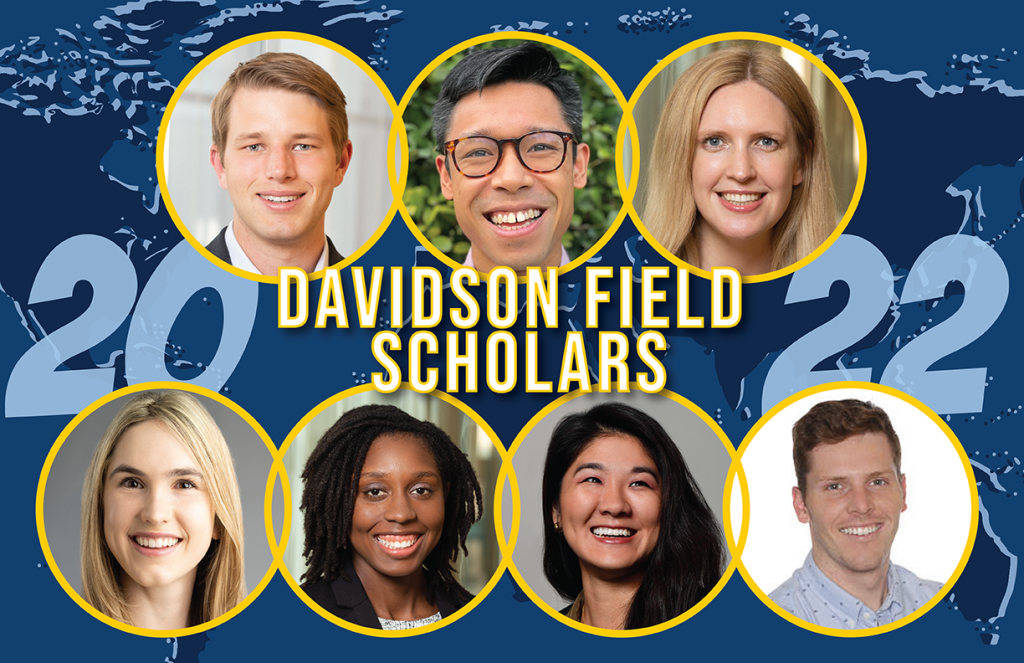
As an independent nonprofit with an education focus, the William Davidson Institute at the University of Michigan (WDI) has relied on students as essential drivers for impact since its founding 30 years ago. Students participate in each stage of WDI’s projects, from data analysis to strategy development to implementation. And for the last three years, the University of Michigan students most dedicated to WDI’s mission to equip economic decision-makers in emerging markets with the tools for success have earned special recognition as Davidson Field Scholars.
WDI again is proud to welcome its next cohort of these important student contributors.
“Davidson Field Scholars provide valuable insights into multiple WDI projects, ranging from consulting work with partners to program support for organizations in low- and middle-income countries,” said WDI President Paul Clyde. “They play a critical role in our Michigan Academy for Developing Entrepreneurs and WDI’s International Investment Fund.”
This year’s group of Davidson Field Scholars is no different. Each brings distinct expertise — from medical to high-level marketing experience — to the specific challenges of WDI’s global partners. In collaboration with WDI partners, students have helped organizations execute technology updates in global markets, push forward local health equity measures, and develop go-to-market strategies for essential products, among other efforts.
Students who become Davidson Field Scholars are dedicated to finding business-empowered approaches to many economic and social issues in low- and middle-income countries (LMICs). They also demonstrate students’ commitment to understanding and sharing business solutions with partners through consulting, analyzing, and managing complex dilemmas for organizations around the globe, Clyde said.
To earn the designation, scholars must complete two courses or programs through WDI. Many students work with WDI to complete their Multidisciplinary Action Project (MAP) as part of their MBA degree. Scholars may also participate in a WDI-supported internship, independent study, the International Investment Fund, or the Michigan Academy for the Development of Entrepreneurs (MADE). Through these opportunities, partner organizations secure imperative guidance and students gain meaningful skills. “Within just a couple years, these scholars develop experiences that many of our partners rely on,” said Clyde.
WDI is looking forward to working closely with its current team of Davidson Field Scholars and seeing the powerful contributions they will undoubtedly bring to its global partners, academic programming, and the business world as a whole.
Learn more about this program on our Students page.

Burnett is dedicated to guiding brands toward powerful marketing plans, and she is working toward her Ross MBA with the goal of driving brand management strategies. Before beginning her MBA, she earned her Anthropology degree from Dartmouth College. Burnett completed a WDI-sponsored MAP project in Uganda, where she developed a go-to-market strategy for diabetic products. She plans to work with the International Investment Fund and participate in either a WDI-supported internship or independent study. After graduation, Burnett plans to return to PepsiCo Frito-Lay, where she completed a marketing internship.

Hendon worked with cloud software development and global technology expansion teams at Deloitte before beginning his MBA program at Ross. He also earned his degree in International Business and Marketing from the University of Georgia prior to starting at U-M. With a concentration in healthcare management, Hendon is focusing on healthcare product commercialization, growth strategies and health equity. He has traveled to Uganda to build a diabetes product commercialization strategy as part of a MAP project and interned with Medtronic’s Surgical Innovation team to evaluate global startups. Hendon is also slated to work on a project for a rehabilitation clinic in Ghana and plans to join the International Investment Fund.
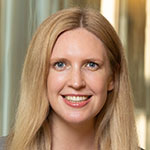
Jahnke is focused on pivoting to a career in healthcare investment banking. After earning her undergraduate degree in history and political science from the University of Michigan, Jahnke worked in the U.S. Department of Justice’s Antitrust Division. As a Ross MBA student, she completed a WDI-coordinated MAP project at the Aravind Eye Care Hospital in India. She is currently a research assistant on a project designed to understand the role of Aravind’s culture in a hospital they have been involved in starting and running in Nigeria. Jahnke will be joining Morgan Stanley after completing her degree at the Ross School of Business.

Lam is a dual-degree student, expecting to graduate with a Master of Business Administration and a Master of Urban and Regional Planning. Before joining the Ross School of Business, she earned her Bachelor of Arts in Sociology and Psychology at U-M. Lam has completed a WDI-sponsored MAP with TIP Global Health, mapping the production cycle and delivering a cost analysis for ready-to-use therapeutic food for people who are malnourished. She not only grew her business experience but also boosted her understanding of poverty and desire to live as a global citizen. Lam plans to begin a WDI-approved independent study and then work at a development-centered organization.
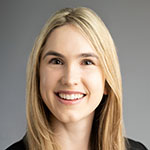
Before joining the Ross School of Business, McMichael earned her Biomolecular Science degree from U-M. She is currently pursuing both a Ross MBA and a Doctor of Medicine, hoping to make impactful, system-level changes to the worlds of academic medicine and global health equity. She completed an internship focused on developing a business plan for a rehabilitation clinic in Ghana, merging her business and healthcare expertise. McMichael has completed a WDI-sponsored MAP project and plans to participate in a WDI-approved independent study.
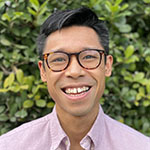
Before beginning his Master of Business Administration, Naovarat earned a Bachelor of Arts in Philosophy from Texas A&M University, graduated with his Doctor of Medicine degree from the University of Texas Medical School, and worked as a physician-researcher. He has focused much of his time at the Ross School of Business on venture capitalist endeavors including participating in venture fellowships, founding the Michigan Venture Consulting group, and interning at UPMC Enterprises. He also joined a WDI-sponsored MAP project, working with Clínica de Familia La Romana in the Dominican Republic to aid in the implementation of a new imaging device for the clinic. Naovarat plans to participate in the International Investment Fund with WDI and transition to a venture firm, perhaps with a focus on biotech, after graduation.
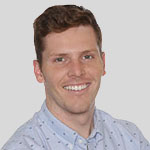
Plamondon has been a member of the WDI-supported International Investment Fund, where he is the Managing Director. Before beginning his MBA, he earned his Bachelor of Arts from the University of Notre Dame. After graduation, he traveled to Zambia to work with a mobile payments company, and he has since worked with a healthcare business in Kenya. He led the International Investment Fund’s first investment, supporting a startup in Kenya. Plamondon hopes to work at a startup focused on clean energy or financial inclusion for sub-Saharan African populations after completing his MBA.
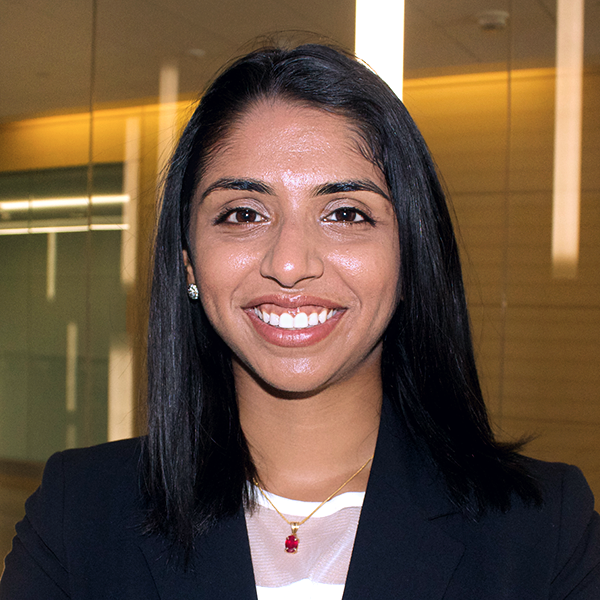
Rao graduated from the University of Texas with a Bachelor’s Degree in Human Biology and completed a Master’s of Public Health with a focus in Chronic Disease Epidemiology and Regulatory Affairs from Yale University in 2018. Before pursuing an MBA Ross, Rao worked in healthcare analytics at several large firms, including CVS Health and Blue Health Intelligence. Rao is developing an independent case study, evaluating the Aravind Eye Care System model and its replicability in Nigeria. In the Winter 2023 term, Rao plans to participate in the WDI-supported BA685: Healthcare Delivery in Emerging Markets, with a special focus on the Kisii Hospital Vision Center in Kenya. Rao plans to apply her degree and experiences after graduation at Boston Consulting Group, with a focus on health care.
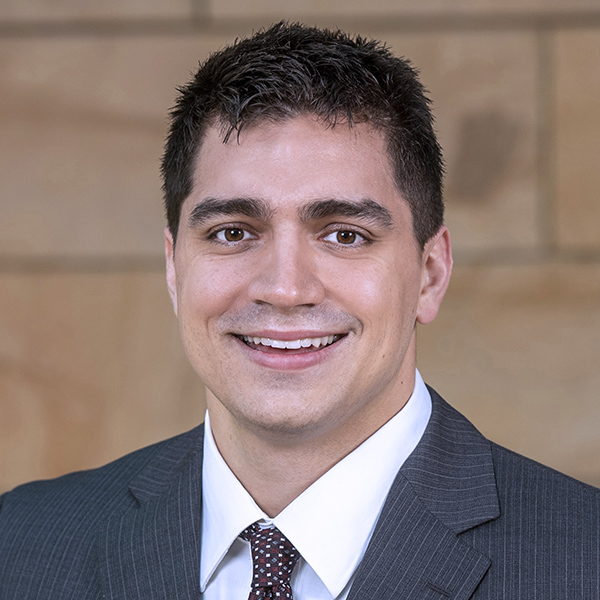
Rajabian graduated with a Bachelor’s Degree in Biomedical Engineering from the University of Michigan in 2011 and is a licensed Professional Engineer in the State of Michigan. A resident of Detroit, Rajabian has worked for DTE Energy for ten years, including currently as General Supervisor at DTE Energy’s Warren Service Center. Rajabian also is a co-owner of an engineering company and a fintech start-up, Relic. Rajabian participated in a WDI-sponsored Multidisciplinary Action Project (MAP) by providing international market entry analysis for a US healthcare provider in Vietnam. As a Davidson Field Scholar, Rajabian is interested in providing consulting services in healthcare, energy, or financial technology — focus areas he plans to apply to his career post graduation.
Note: This article was updated Jan. 5, 2023 to reflect the addition of Geetika Rao and Bryce Rajabian.
Thank you to all who attended the event on Nov 16th. A recording of the event is now available (above) and on the WDI Youtube Channel.
Culinary-focused travel has become a hot trend within the tourism sector in recent years. Tourists increasingly prefer to let their taste buds decide how and where they travel. For cities and countries looking to market themselves, culinary tourism has become an essential and powerful branding element.
But can this kind of travel be about much more than food? Yigal Schleifer, the co-founder and editor-in-chief of Culinary Backstreets, will tackle that question and more during a talk hosted by the William Davidson Institute at the University of Michigan. The discussion, “Crossing Borders and Cuisines: A New Flavor of Sustainable Tourism,” is slated for 5:00–6:00 PM, Nov. 16 in R1230 of the University of Michigan’s Ross School of Business. The session is free and open to the public. It also will be broadcast via Zoom; click here to register.
Schleifer will explore how Culinary Backstreets, which provides tours in a dozen cities around the world, uses food-oriented travel to promote cross-cultural communication and sustainable tourism for more impactful experiences. Created in 2012, Culinary Backstreets covers the local and traditional food scene and offers immersive small group culinary walks in cities including Istanbul, Lisbon, Mexico City, Tbilisi, Tokyo, Barcelona and a half dozen more. The talk will also look at how the COVID crisis has impacted culinary travel and how this sector can be rebuilt with an eye towards sustainability.
Between 2002 and 2010, Schleifer was based in Istanbul, where he worked as a correspondent for The Christian Science Monitor and the German Press Agency (dpa). While in Istanbul he also co-founded Istanbul Eats, an award-winning blog about the city’s local food scene, and co-wrote a guidebook of the same name. He also launched “Istanbul Calling,” a blog about Turkish foreign and domestic affairs. Schleifer’s work has appeared in The New York Times, The Washington Post, Foreign Policy, Ha’aretz, The Times (London) and several other publications.
Schleifer was an advisory board member for the Livelihoods Innovation through Food Entrepreneurship (LIFE) Project, which supported and encouraged people to engage across cultures through entrepreneurship and job creation in the food sector. Since 2017, WDI’s Entrepreneurship Development Center has worked on the U.S. government-funded LIFE Project, in collaboration with the Center for International Private Enterprise (CIPE), IDEMA, Union Kitchen and the Stimson Center.
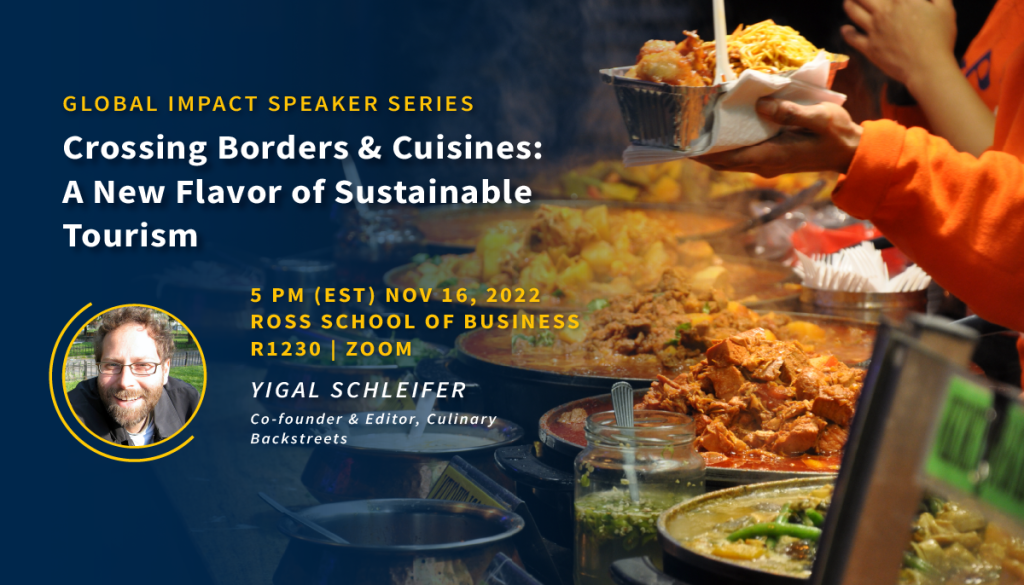
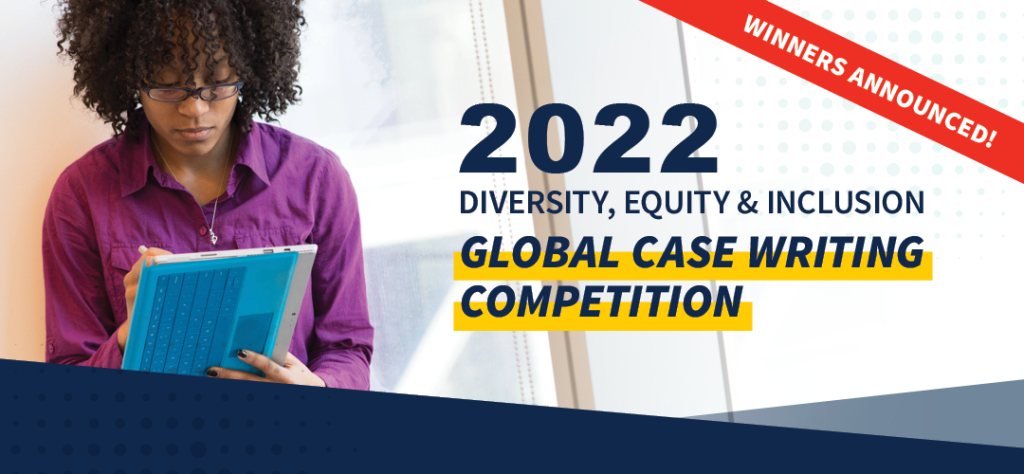
This year’s second annual DEI (diversity, equity and inclusion) Global Case Writing Competition again focused on improving and understanding DEI in the global workplace and attracted nearly double the number of case submissions compared with the first year. This year’s winning cases explored issues including minority management representation for products marketed to black consumers, neurodiversity in the workplace and challenges that women of color face in the corporate world.
The competition is sponsored jointly by WDI Publishing and the University of Michigan’s Ross School of Business. For 2022, a total of 52 cases were submitted to the competition, representing authors from over 40 universities across 12 different countries. Last year’s inaugural competition drew 30 submissions received by WDI Publishing, part of the William Davidson Institute (WDI) at the University of Michigan.
“Not only did we receive more submissions this year from around the world, but we also saw significant increases in attendance at our informational case writing webinars,” said David Wooten, Associate Dean of One-Year Masters Programs at Michigan Ross and University Diversity & Social Transformation Professor at U-M. “Additionally, this year’s submissions were of a very high quality overall and addressed broader facets of diversity such as physical disability, neurodiversity, religion, and accessibility in varied industries such as high tech, retail, academia and agribusiness.”
The winning cases from last year’s competition have already been adopted and taught at universities throughout the U.S. and beyond, said Sandra Draheim, Manager of WDI Publishing, who expects the same trend this year.
“There’s truly a continuing and increasing global interest in the topic of DEI,” she said. “The winners reflect the many forms of DEI and how it permeates all levels and departments of an organization.”
All submitted cases were reviewed using a double-blind process to narrow down the field to a select group of finalists. Those cases were then reviewed and ranked by four finalist judges, who are experts in DEI, case publishing and business education: Kim Eric Bettcher, Director of Policy and Program Learning at the Center for International Private Enterprise; John Lafkas, Senior Editor at Harvard Business Publishing; Greg Merkley, Director of Case Publishing for the Kellogg School of Management; and Kavitha Prabhakar, Chief Diversity, Equity, and Inclusion Officer for Deloitte US.
The winning three cases, along with honorable mentions and other exceptional work, will be published by WDI Publishing and available for adoption by academic institutions and businesses around the globe. Additionally, the first-place winner was awarded a $10,000 prize, the second-place winner earned $5,000, and the third-place winner received $2,500.
These will serve as a critical tool in preparing and enabling business leaders to challenge the status quo, transform long-held beliefs and behaviors, and build a more equitable future.
Kavitha Prabhakar, Chief Diversity, Equity, and Inclusion Officer for Deloitte US
A case study is an academic practice, but the situations within them are very much rooted in the realities of business. Based on actual dilemmas, these cases elicit layers of practical quandaries, questions and solutions.
“The challenges that these business cases present are thought-provoking, forward-looking, and very representative of the complexity inherent in DEI efforts,” said Prabhakar. “These will serve as a critical tool in preparing and enabling business leaders to challenge the status quo, transform long-held beliefs and behaviors, and build a more equitable future.”
First Place: Navigating SheaMoisture through a Racial Awakening: Cara Sabin’s Authentic Leadership
In a timely and powerful case study, the winners of this year’s competition tackled questions of consumer connection, branding, diverse leadership and racial equity. Stephanie Robertson, Assistant Dean of Community Engagement and Inclusion, and Jeremy Petranka, Associate Dean of Quantitative Programs, both at Duke University’s Fuqua School of Business, shared the story of Cara Sabin and SheaMoisture’s journey to more authentic representation and relationships.
At the height of the Black Lives Matter movement in 2020, consumers and digital advocates called out the disconnect between the white leadership at Unilever, which owned SheaMoisture, and the company’s mission. The winning case covers the journey of Cara Sabin, CEO of Sundial Brands, as she determines how to best respond to a crisis based on racial identity.
Second Place: Perks or Rights? Accommodating Neurodiversity in the Unionized Workplace
One of the major benefits of this open competition is the breadth of experiences and expertise that come to the surface. While questions of DEI are ones that every business person must face, it is critical that the voices of those most impacted by these concerns are amplified. This year’s second-place winner did just that.
“As a person with autism, we often find that our stories and perspectives are filtered through a neurotypical lens,” said Katherine Breward, second place winner and Associate Professor in Human Resources at the University of Winnipeg. “That is one reason why this competition was so exciting for me. It was an honor to be able to tell the story of a worker with autism through the lens of an autistic perspective, one that focused on mutual misunderstanding rather than a default assumption that autistic perspectives are inherently ‘wrong’ or problematic.”
Breward’s case highlights the story of a high-performing employee with autism and her request for a disability accommodation, as well as a promotion.
Third Place: How Can Shoppers Market Create an Inclusive Environment for Women of Color?
This year’s third-place winner confronted the critical issues of DEI intersectionality in the corporate world. Author Poonam Zantye, Director of Business Strategy at Walmart, wrote a case that explored the challenges that women of color face in the workplace and challenges students to develop a multi-disciplinary strategy to address the foundation of their poor leadership representation.
Honorable Mentions: Sexual Harassment and Physical Disability
Two other cases caught the judges’ attention, and both received honorable mentions. The first, Activision Blizzard, Inc.: Facing the Call of Duty With a Laser Focus on Women, dealt with the rampant gender discrimination and sexual harassment at a popular video game company. The second, DEI at Dynamo Relations: The Challenges of Remaining an Inclusive Company, tells the story of a successful employee with a physical disability that may put him at risk during a key assignment.
While the call for DEI efforts across the business world continues to grow each year, the materials needed to teach business students these skills are lacking compared with other types of case studies. This deficit is one the WDI Publishing team is working hard to fill.
Through the DEI Global Case Writing Competition, WDI Publishing has set out to strengthen the public store of educational materials centered on this essential endeavor. In the two years of competitions, individuals and teams from around the world have submitted compelling and impactful cases that push students to expand both their acumen and empathy when grappling with complex DEI questions.
“I feel there’s still a gap in business case studies focused on diversity, equity and inclusion, so through this competition, we’re building a solid collection that the world’s business schools can adopt,” Draheim said. “The 2023 DEI Case Writing Competition, which we plan to launch later this year, promises to expand these educational tool sets even further.”
About WDI
At the William Davidson Institute at the University of Michigan, unlocking the power of business to provide lasting economic and social prosperity in low- and middle-income countries (LMICs) is in our DNA. We gather the data, develop new models, test concepts and collaborate with partners to find real solutions that lead to new opportunities. This is what we mean by Solving for Business — our calling since the Institute was first founded as an independent nonprofit educational organization in 1992. We believe societies that empower individuals with the tools and skills to excel in business, in turn generate both economic growth and social freedom — or the agency necessary for people to thrive.
